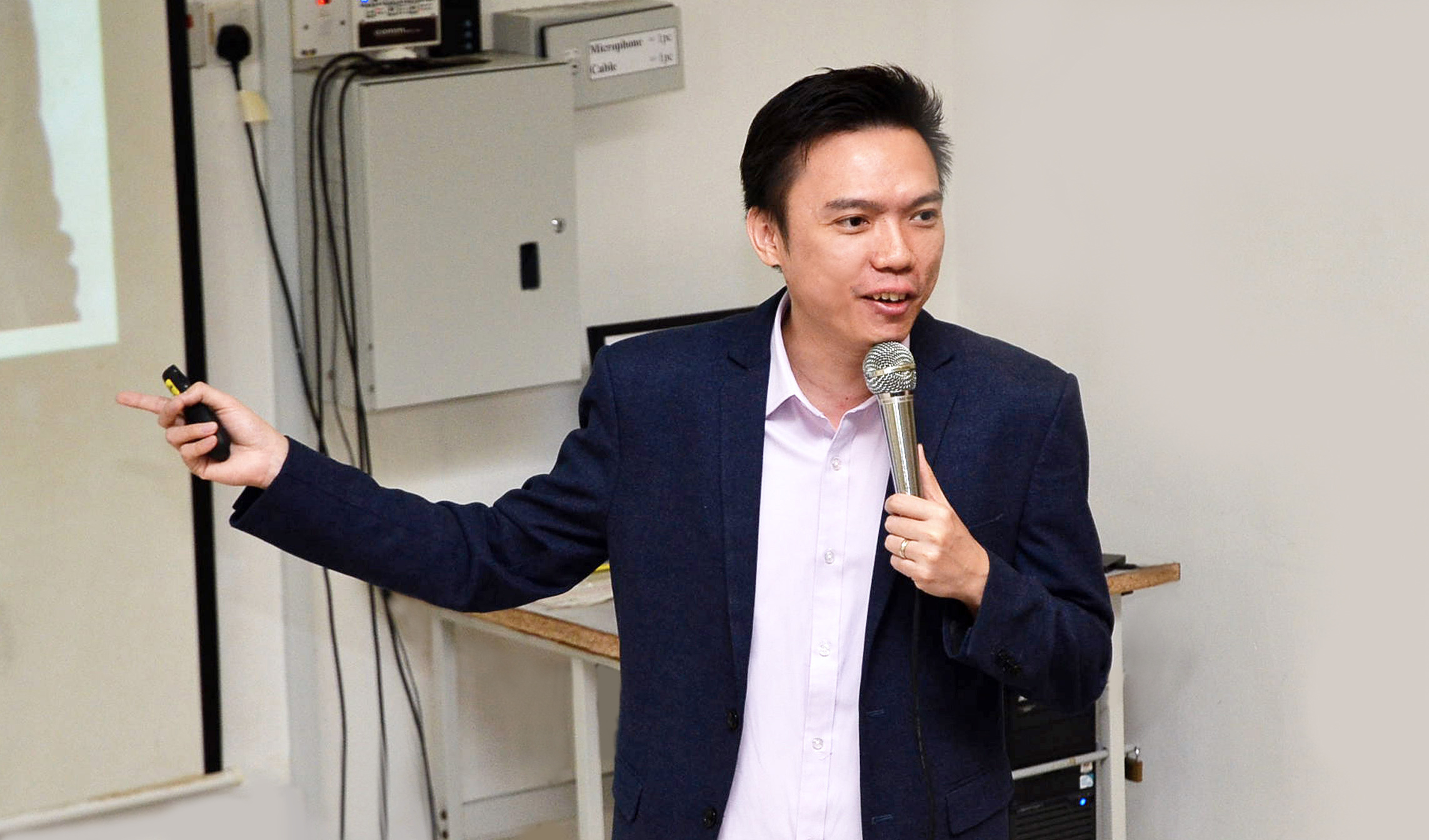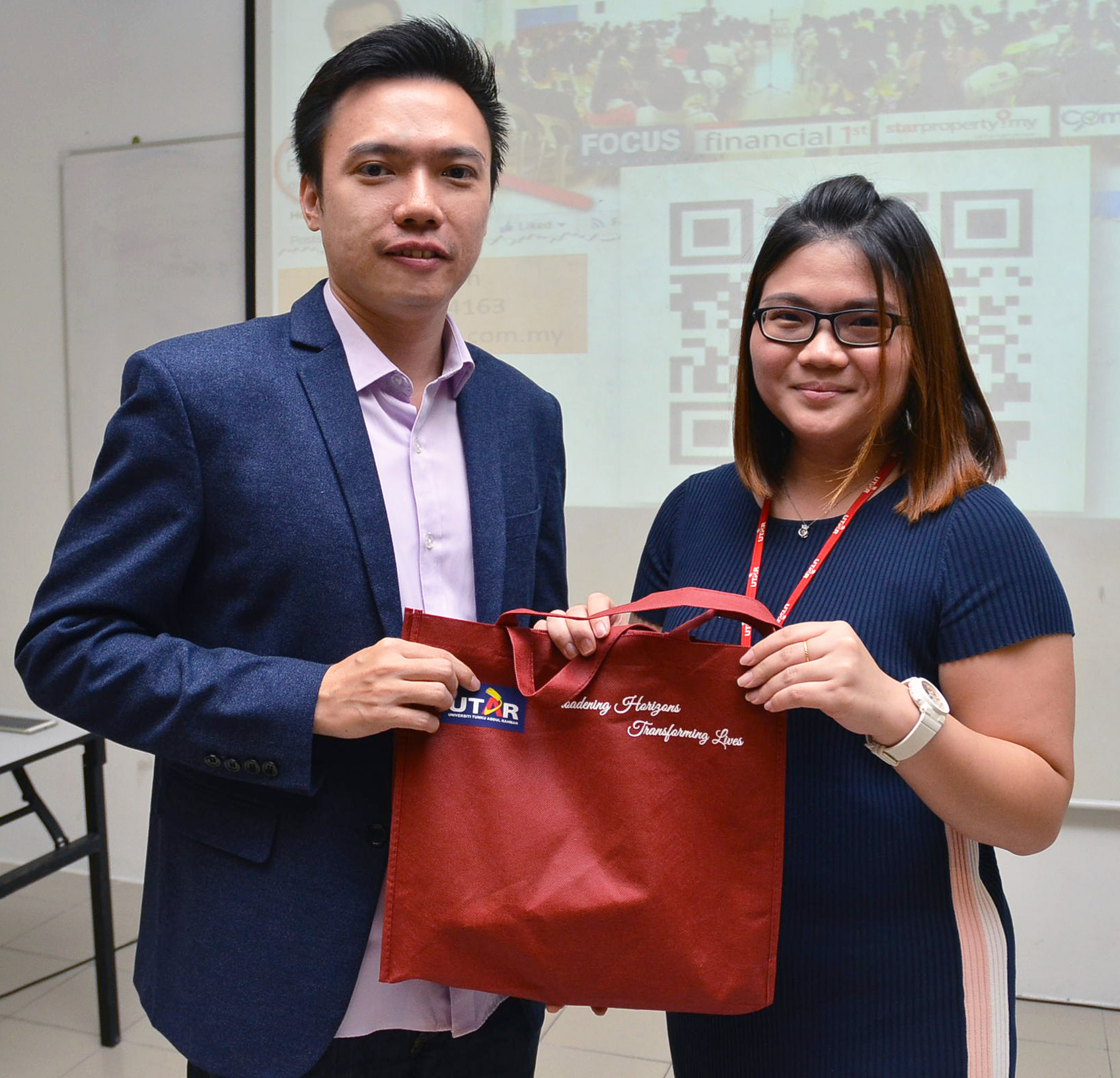


Yeoh explaining the differences between agents and real financial planners
A financial literacy talk, titled “How to be a Real Financial Planner” was organised by Centre for Extension Education (CEE) on 23 July 2019 at UTAR Kampar Campus.
Originating from Kampar, the invited speaker and licensed financial planner of VKA Wealth Planners Alex Yeoh, returned for the second time to educate participants about the criteria to become a licensed financial planner. He shared a past case of how students were scammed into becoming insurance agents rather than receiving the promised opportunity to be a financial planner.
“There is a difference between becoming an agent and a proper financial planner. As many of you would have already know, a financial planner is someone who offers financial advice and plans for the customers to achieve their financial goals. Agents have very specific roles and they promote products that are in favour of the employer. For example an insurance agent would only offer you the plans and products from its company alone. However a real financial planner has a wide scope of offerings, plans and products for the customer. The plans or products the financial planner promotes can consist of various company. In other words, a financial planner will offer you a financial plan that consist of various products from different company, to help the customer achieve his or her goals,” explained Yeoh.
He further elucidated on the six steps involved in a financial process. The first step is establishing and defining the relationship between the financial planner and customer. In the second step, a financial planner gathers data, and establish and prioritise goals. Then, the financial planners analyses and evaluates the financial positioning, and later develops and presents the financial recommendations to the customers. The fifth step is where recommended plan is implemented. Finally the financial planner conducts monitoring of the implemented plans to reassess the objectives and strategies, and to make necessary adjustments.
However, Yeoh highlighted that financial planners do face challenges as well. He mentioned that customer’s reluctance to disclose information deters the smooth financial planning process. Another more common problem mentioned was customer’s unwillingness to pay fees for the consultation services offered. He mentioned that financial planners earn either through fee-based or commission-based. Customer’s lack of awareness on the different roles between agents and financial planner can also make consultation difficult.
While these challenges may seem difficult, Yeoh explained that taking the test to be certified financial planner was more difficult. Before becoming a certified financial planner, he explained that participants need to identify which type of financial they wish to become – Registered Financial Planner (RFP) or Certified Financial Planner (CFP). According to Yeoh, participants who are interested of becoming a RFP will have to undergo a course of seven modules and their services are only limited in Malaysia, while the CFP course consists of four modules and their services are allowed internationally. Upon completing the courses, participants will have to obtain their license from Bank Negara Malaysia or Securities Commission Malaysia.
Towards the end of the talk, he offered participants some advice. Among the few, he emphasised the importance to do budgeting, in order to track one’s expenses and save money effectively. He told participants of the golden rule in saving money, which is “6:3:1” – 60 percent for expenses, 30 percent for investment or savings, and 10 percent to pay one’s insurance. In view of the bad economy, he emphasised again and reminded participants to save money and spend wisely.
The talk ended with an interactive Q&A session.

Participants asking questions

Souvenir presentation by CEE staff Ho Mei Kei to Yeoh
© 2019 UNIVERSITI TUNKU ABDUL RAHMAN DU012(A).
Wholly owned by UTAR Education Foundation Co. No. 578227-M LEGAL STATEMENT TERM OF USAGE PRIVACY NOTICE